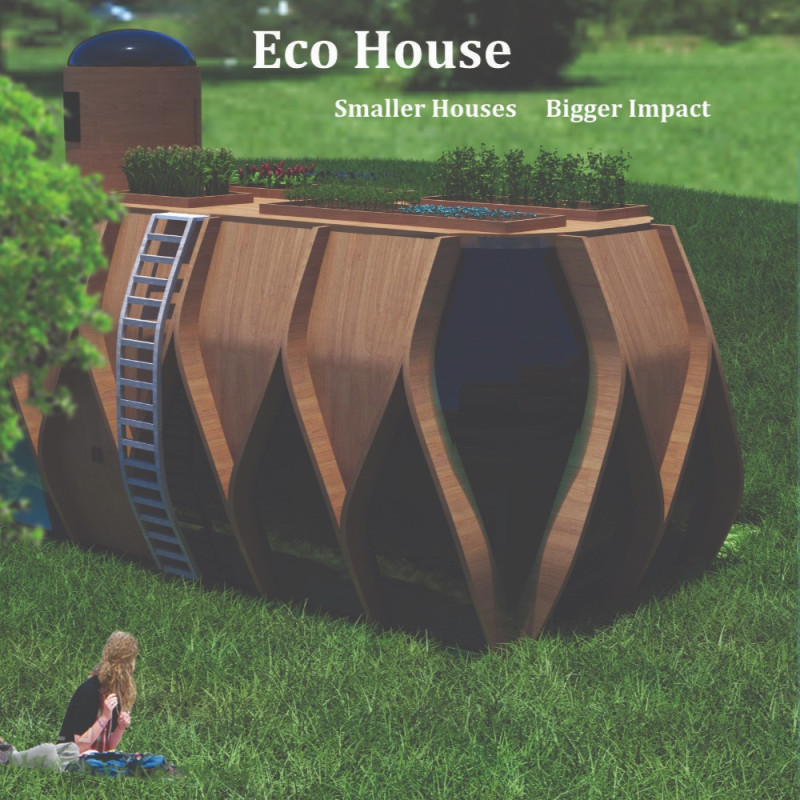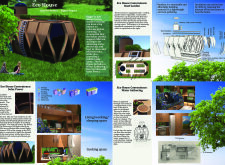5 key facts about this project
Sustainable Materials and Design Choices
The Eco House features a series of design innovations that set it apart from conventional residential projects. Central to its ethos is the use of bamboo as a primary construction material. Known for its durability and rapid renewability, bamboo contributes to both strength and insulation, enhancing the home’s energy efficiency. The roof accommodates a rooftop garden, providing space for growing vegetables and herbs while facilitating biodiversity. This feature reduces dependence on commercially sourced food and supports environmentally friendly practices.
Incorporating solar panels throughout the structure maximizes energy efficiency. These panels are integrated not only into the roofing but also as part of the window designs. This multifunctional approach allows the building to harness maximum sunlight for both electricity and thermal heat, promoting energy independence.
Water Management Systems
The architectural design includes an advanced rainwater harvesting system that collects and filters rainwater, allowing for its use in household applications. This system is constructed with the intent of providing a sustainable water supply, which is crucial for reducing the property’s ecological footprint. The water is stored in an on-site tank, servicing both the kitchen and bathroom, thereby promoting efficient resource use within the home.
Thermal Comfort and Efficient Living
The Eco House employs effective insulation techniques to maintain thermal comfort while minimizing energy consumption for heating and cooling. Good insulation plays a key role in reducing energy costs, thereby enhancing the overall sustainability of the residence. The evaporative cooling system effectively uses moisture from stored water to provide a natural cooling effect in warmer climates.
The project represents a thoughtful integration of innovative design elements that reflect current needs for sustainable living. To discover more detailed architectural plans, architectural sections, and architectural designs that illustrate these concepts, readers are encouraged to explore the project presentation for in-depth insights into this forward-thinking architectural endeavor.























